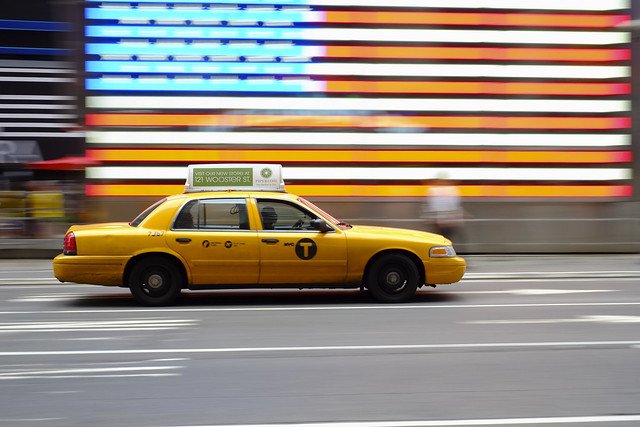'This Is Not How America Treats Its People': Taxi Drivers Urge City Council To Take Action On Medallion Debt Crisis
June 24, 2019, 3:45 p.m.
The Council's hearing was the first in response to a NY Times investigation showing how city officials did little to stop a financial bubble in the market for medallions that ruined the lives of many taxi drivers.

In an emotional and highly-charged hearing, City Council members on Monday began their inquiry into the city’s role in the taxi medallion crisis that has bankrupted and financially crippled thousands of cab drivers, most of them immigrants who borrowed heavily to break into an increasingly competitive industry that many thought was a sure bet.
The Council’s hearing was the first in response to a yearlong New York Times investigation that exposed how city (and state) officials did little to stop a financial bubble in the market for medallions, the permits auctioned by the city that allow individuals to operate a cab. Over the last decade, thousands of taxi drivers bought medallions at highly inflated prices, rising from $200,000 in 2002 to more than a $1 million in 2014, according to the Times.
Bhairavi Desai, president of the National Taxi Workers Alliance, who testified at the hearing, estimated the current value of a medallion as between $150,000 and $200,000.
Desai was among those who have urged the city to come up with a way to force lenders to forgive some of the crushing debt taxi drivers are currently facing.
"All of that can be done and should be done," she said. "These banks are finding ways to [forgive portions of the loans] when it suits them. We need to force them to do it."
Monday’s hearing, which followed the introduction of four bills earlier this month aimed at adding financial scrutiny of the industry, focused on how Taxi and Limousine Commission officials have been complicit in the problem, at one point running ads that promoted medallions as “better than the stock market.”
“The city has the same perverse incentive as the predatory lenders, brokers and speculators,” said Councilman Ritchie Torres of the Bronx, who leads the Council’s oversight and investigations committee, during the hearing.
Torres and City Council Speaker Corey Johnson are sponsors of a bill to create an “office of Financial Stability” within the TLC to examine the industry's finances along with the city Department of Investigations.
Another bill, lead by Council Member Ydanis Rodriguez, the chair of the transportation committee, would require the TLC to scrutinize taxicab brokers, who profited handsomely off the scheme to sell overpriced medallions.
There were warning signs early on, according to the Times’ investigation. In 2010, an urban planner employed by the city wrote a report citing deep concerns about the medallion market, but TLC officials denied ever seeing the document.
Torres said that the City Council had on Monday morning obtained a copy of the so-called Roth report, named after its author Gary Roth.
“Your agency knowingly sold medallions to unsuspecting buyers at inflated prices,” he said to Bill Heinzen, the acting commissioner of the TLC.
Heinzen, who took over the role from Meera Joshi in March, repeatedly said he was unaware of many of the issues. Prior to serving as acting commissioner, he was the agency’s deputy commissioner for policy and external affairs for more than two and half years.
“I can’t speak to whether the TLC did enough then,” he said, referring to the period beginning around 2010.
Under pressure from Torres, Heinzen eventually accepted responsibility on behalf of the TLC, although he stopped short of apologizing to the cab drivers who sat in the audience who at several points booed the commissioner.
Mayor Bill de Blasio, who announced a plan to eliminate as much as $10 million in fees and offer drivers financial counseling, has been criticized for not doing enough to take responsibility and help relieve some of the debt burden for drivers. On the Brian Lehrer Show, he described the crisis as a “private market reality”; a comment Torres scoffed at during the hearing.
In addition to an interrogation of the TLC, the hearing featured heartbreaking stories of cab drivers, many of them over 50, who have found themselves under crushing debts and thoughts of suicide. Over the last year, at least eight cab drivers have killed themselves.
“Every single day, […] every time I go on the streets, I think about taking my life,” said Mohamadou Aliyu, a medallion owner from the Ivory Coast. “The only thing that stops me is my kids.”
Aliyu suggested that regulators had effectively turned a blind eye because the industry is made up of mostly immigrants, many of whom looked at medallions as a path toward the American Dream, which included paying for the college tuitions of their children.
"This is not America," he cried. "This is not how America treats its people."